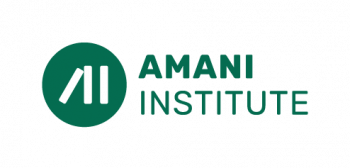Building a Social Sector Jobs Economy
January 15, 2013
This blog post was originally published on the iHub’s blog and cross-posted on Innovation Africa.
About a month ago, McKinsey & Company, the world’s premier consulting firm released a report on the divide between the need for jobs for young people and the lack of skills that graduates today possess in the hunt for those jobs. Their study was exhaustive – it covered 8500 employers, youth and educators from nine countries. And its finding was stark – seventy-five million youth are in need of jobs, while only 43% percent of employers believe they can find the talent they need even for entry-level jobs. If you look closer, the depth of the problem becomes more evident. Nearly 75% of providers of education believe their graduates are ready for work while neither employers (42%) nor the young people themselves (45%) believe that. There is a gap between what universities think are necessary skills and what the job marketplace wants.
Social Change projects: there is no globally accepted training to prepare someone to be able to solve social problems
This problem spans the entire economy. However, it is arguably even more prevalent in the world of social change. Unlike medicine or law or accountancy or perhaps even business, there is no globally accepted training to prepare someone to be able to solve social problems. Yet nearly everyone agrees that social change work is the hardest work of all – there is nothing in business or law that can compete with the challenge of ending violent conflict or reducing poverty or providing sustainable health to a population. At the same time, more and more young people are seeking careers that involve both doing good and making money. But they are not prepared for those careers. In 2010, the US Institute of Peace released a similar study to the McKinsey one, though focused on the specific field of conflict resolution. Their finding was that nearly 90% of education providers believed in their students’ readiness for this work while only 50% of employers agreed. In the social sector, the gap between skills and education is even larger than in the general economy.

A social change project in Venezuela
In a fast-changing 21st century economy, where problems are multiplying and flowing across national boundaries, this critical skills gap needs to be addressed, and we need radically new education models to address it, to make education more relevant to the marketplace. We need to build future generations that can not only think and write well, but also apply specific skills such as technological literacy, yes, but also social entrepreneurship, design thinking, empathy, systems analysis, and so on. Only then will we have a society capable of thinking differently – and capable of rising to Albert Einstein’s famous challenge of developing a higher order of problem-solving thinking than the thinking that created those problems in the first place. Roshan Paul is President of the Amani Institute, which is building a better educational model for people interested in careers in social change. Their next course is a 1-month executive training in social entrepreneurship – applications are open!





